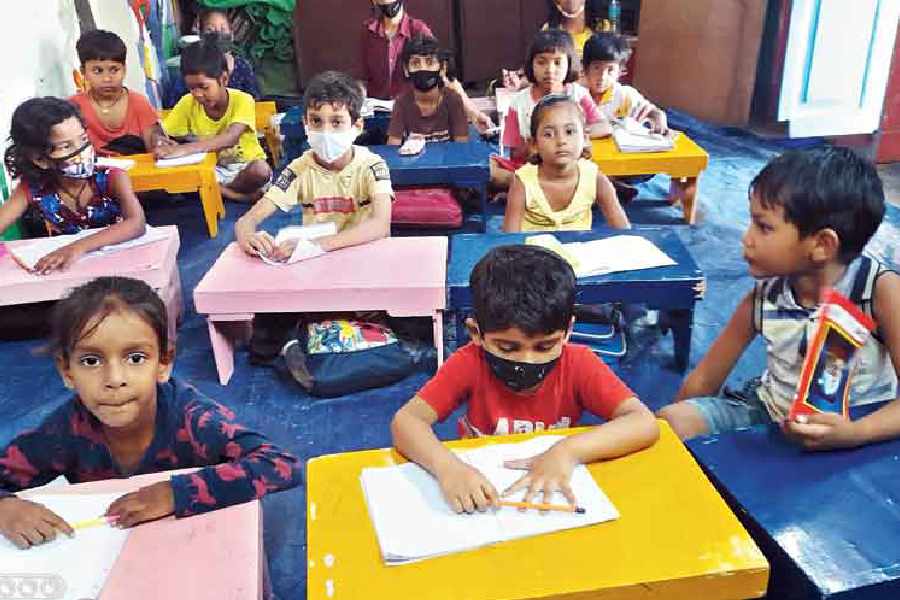Pre-primary classrooms should be non-competitive and children should be allowed to learn in a stress-free environment, a member of the national core committee of an association of pre-schools told teachers at a session recently.
The teachers were told that they should make children pick up skills through collaborative activities, instead of only focusing on academics.
“Teachers should try to make the school environment and classrooms non-competitive. That will help children learn in a stress-free environment,” said Suman Sood, a member of the national core committee of Early Childhood Association, a forum of pre-schools, and director BD Memorial Junior School.
Sood was addressing around 120 teachers from 15 schools at Pailan World School on foundational literacy and numeracy.
In the progress report of the children, she said, the teachers should focus on what the kids have learnt, instead of “reporting what the child has not learnt.”
“There should definitely not be any rankings,” she said.
Most schools, however, do not have any ranking at the pre-primary level.
But parents have a habit of comparing the number of A+ or A grades their child has got compared with others in the class, some teachers said.
“Even parents of children in kindergarten compare their kids’ worksheets with that of students and ponder why their child has made a mistake. They fear mistakes will affect the grades, though the child doesn’t even realise what grades are,” said a teacher.
“Activities should be done through play and children will pick up skills. They learn to share, to wait for their turn and to be patient,” said Sood.
The focus should be more on developing social and language skills; academics will follow naturally.
“Usually in school, we see teachers give an outline and children are asked to colour within that. But instead of doing that, a child can be allowed to just draw, scribble and colour as he or she wants,” Sood told the teachers.
Once they draw, teachers can sit with them and ask what they have drawn and why. “It will help a child think and speak up, and that would develop the child’s language skills,” she said.
Sood gave an old example of a child drawing a blue plant. When the teacher asked the child if he had seen a blue plant, he said: “Yes, underwater.”
“Instead of contradicting the child, the child should be allowed to explain why he has done something,” said Sood. Birla High School, Birla Bharati, South City International School and Indus Valley World School are some of the institutions represented at the workshop.
“Competition will come naturally as and when the child grows up. But when they are this small, we as a school should encourage them to speak up and develop a willingness to participate. They should feel comfortable to open up and talk,” said Rupan Chaudhuri, vice-principal, Birla Bharati.
